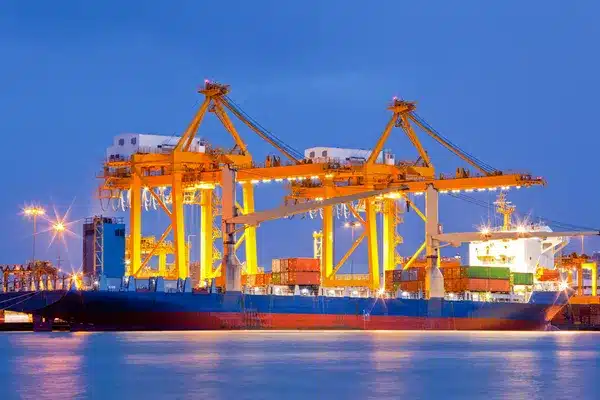The global coffee industry continues to grow, fueled by increasing consumption and a surge in specialty coffee trends. While traditional coffee exporters such as Brazil and Ethiopia dominate the market, China has emerged as a surprising and exciting player in recent years. With regions like Yunnan producing high-quality Arabica beans, importing coffee beans from China is becoming a viable option for businesses looking to diversify their sources, lower costs, or explore unique flavor profiles.
This comprehensive guide walks you through the entire process of importing and shipping coffee beans from China. From understanding the coffee industry and identifying suppliers to navigating regulations and ensuring seamless shipping, this article equips you with the knowledge needed to make informed decisions and streamline your operations.

Table of Contents
Understanding China’s Coffee Industry
China’s coffee industry, particularly in Yunnan Province, has undergone significant transformation. Known for its fertile highlands, Yunnan produces Arabica beans with distinctive flavor profiles characterized by floral and fruity notes, medium acidity, and a smooth finish. While coffee production in China was initially geared towards domestic consumption, the rise of specialty coffee and international interest has opened up export opportunities.
Key Features of Chinese Coffee Production:
- Unique Terroir: Yunnan’s high altitudes and consistent rainfall provide ideal conditions for cultivating high-quality Arabica beans.
- Organic Practices: Many farmers are transitioning to organic and sustainable practices, resulting in premium-grade coffee beans.
- Specialty Coffee Growth: China is increasingly recognized for its specialty-grade coffee, appealing to niche markets globally.
- Competitive Pricing: Chinese coffee beans are often priced lower than those from traditional coffee-producing regions, making them a cost-effective choice.

Sourcing Coffee Beans in China
To source coffee beans effectively, it’s important to identify reliable suppliers and evaluate their products.
Finding Trusted Suppliers:
- Online Platforms: Websites like Alibaba, Global Sources, and Made-in-China list verified coffee exporters. Pay attention to supplier ratings, certifications, and reviews.
- Trade Shows: Events such as the China International Coffee Expo and regional fairs in Yunnan are excellent opportunities to connect with producers and taste their offerings.
- Direct Visits: Visiting farms or cooperatives in Yunnan allows you to assess production quality and establish long-term partnerships.
Evaluating Coffee Bean Quality:
When sourcing coffee, quality is paramount. Request samples and evaluate them based on:
- Flavor Profile: Look for distinct characteristics like floral or fruity notes, balanced acidity, and body.
- Grading Standards: Coffee beans should be uniform in size and free from defects.
- Processing Method: Consider whether the beans are washed, natural, or honey-processed, as this affects the flavor.
- Certifications: Organic, Fair Trade, and Rainforest Alliance certifications enhance marketability and consumer trust.
Negotiating Terms:
- Minimum Order Quantity (MOQ): MOQs for coffee beans typically range from 1 to 5 metric tons. Smaller quantities may attract higher per-unit costs.
- Pricing: Clarify pricing details, including packaging and transportation fees.
- Payment Terms: Standard terms are 30% upfront and 70% after shipment. Use a secure payment method like a letter of credit for large transactions.
Import Regulations for Coffee Beans
As coffee beans are a food product, importing them involves adhering to strict regulations to ensure safety and quality.
Classification and Tariffs:
Coffee beans fall under HS Code 0901, which includes roasted and unroasted beans. Check your country’s import tariffs and trade agreements with China. For example:
- United States: Generally, unroasted coffee beans are duty-free, but roasted beans may incur tariffs.
- European Union: Coffee imports typically have low or no tariffs, depending on trade agreements.
Compliance with Food Safety Standards:
- Phytosanitary Certificate: Required to confirm that the coffee beans are pest-free.
- Certificate of Origin: Verifies the country of origin for tariff purposes.
- FDA Registration: Necessary for food imports into the U.S.
- Lab Testing: Some countries require analysis for pesticide residues, mold, and other contaminants.
Organic and Sustainability Requirements:
If targeting organic or specialty markets, ensure the coffee beans are certified organic and meet sustainability standards like Fair Trade or Rainforest Alliance.
Shipping Coffee Beans from China
Shipping coffee beans requires careful handling to preserve quality and ensure compliance with regulations.
Sea Freight:
Sea freight is the most economical option for bulk shipments.
- Transit Time: 20–40 days.
- Packaging: Use moisture-resistant, food-grade jute or GrainPro bags to protect against humidity and contamination.
Air Freight:
Air freight is suitable for smaller shipments or time-sensitive deliveries.
- Transit Time: 5–10 days.
- Advantages: Faster delivery minimizes the risk of quality degradation.
Rail Freight:
For shipments to Europe, rail freight offers a balance between cost and speed.
- Transit Time: 15–25 days.
Packaging and Labeling:
- Use vacuum-sealed packaging for premium coffee to maintain freshness.
- Clearly label packages with details such as origin, weight, grade, and certifications.
How Much Does It Cost to Ship Coffee Beans from China?
Shipping coffee beans from China to various regions involves several factors that influence cost, including shipping method, destination, volume, and current market conditions. Below is an overview of estimated shipping costs to different regions:
| Region | Shipping Method | Estimated Cost | Transit Time |
|---|---|---|---|
| North America | Sea Freight | $3,000–$5,000 (20-foot) | 20–40 days |
| Air Freight | $5–$7 per kg | 5–10 days | |
| Europe | Sea Freight | $3,000–$5,000 (20-foot) | 25–40 days |
| Rail Freight | $3,000–$4,000 (20-foot) | 15–25 days | |
| Africa | Sea Freight | $3,000–$5,000 (20-foot) | 30–45 days |
| Asia | Sea Freight | $1,800–$3,800 (20-foot) | 7–15 days |
| Air Freight | $3.5–$5.5 per kg | 3–7 days | |
| Oceania | Sea Freight | $3,800–$5,800 (20-foot) | 15–25 days |

Challenges and Solutions in Coffee Importing
Quality Control Issues:
- Solution: Hire a third-party inspection agency like SGS or Bureau Veritas to verify quality before shipment.
Delays in Customs Clearance:
- Solution: Work with an experienced customs broker to handle documentation and navigate regulatory requirements.
Transit Risks:
- Solution: Invest in cargo insurance to cover potential losses due to damage or delays.
Market Competition:
- Solution: Differentiate your product through branding, storytelling about the origin (e.g., Yunnan), and highlighting certifications like organic or Fair Trade.
Why Choose Tonlexing for Coffee Bean Logistics?
Tonlexing specializes in handling sensitive and perishable cargo like coffee beans. With years of experience in food logistics, we ensure your beans arrive fresh, undamaged, and on time.
Our Services Include:
- Sea Freight and Air Freight: Cost-effective and expedited shipping options tailored to your volume and timeline.
- Customs Clearance: Assistance with documentation, ensuring compliance with import regulations.
- Door-to-Door Delivery: From Yunnan farms to your warehouse, we manage the entire logistics chain.
- Cargo Insurance: Comprehensive coverage for risks during transit.
- Packaging Solutions: Expertise in packing coffee beans to preserve quality.
Frequently Asked Questions
Can I import roasted coffee beans from China?
Yes, roasted beans can be imported, but they require more stringent packaging and shorter transit times to maintain freshness.
What’s the best shipping method for small quantities of coffee beans?
Air freight is ideal for small or urgent shipments due to its speed and reliability.
How do I ensure coffee beans stay fresh during shipping?
Use vacuum-sealed packaging, proper labeling, and temperature-controlled storage where possible.
Do Chinese coffee beans meet international standards?
Yes, many Yunnan producers adhere to global quality and sustainability standards, with certifications like Organic and Fair Trade.
Importing coffee beans from China presents a unique opportunity to access high-quality products at competitive prices. By sourcing from reputable suppliers, ensuring compliance with regulations, and partnering with an experienced logistics provider like Tonlexing, you can navigate the complexities of the import process with ease. Whether you’re a specialty coffee roaster, wholesaler, or retailer, Chinese coffee beans offer immense potential for growth in the global coffee market. Contact Tonlexing today to learn how we can streamline your coffee importing needs and help you bring the best of Yunnan’s coffee to your customers!


